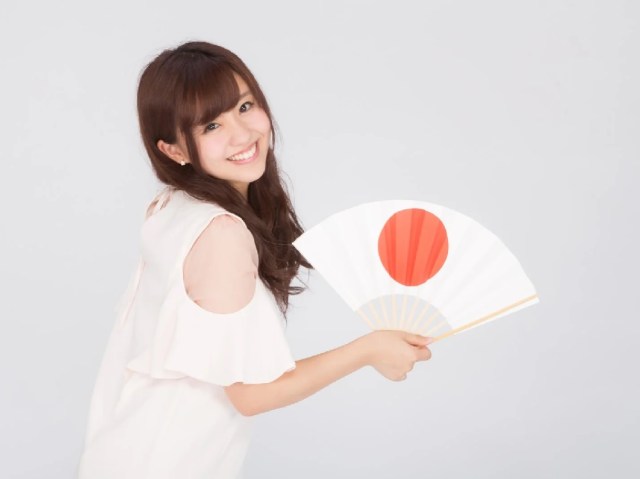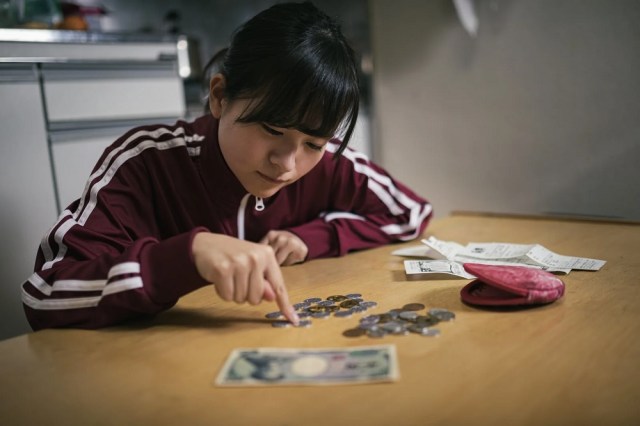
Top politician in Tokyo’s neighbor says higher prices for inbound travelers would be like fining them for coming to the country.
Japan finds itself in an unprecedented situation right now. The pandemic was, obviously, a difficult period for the travel, hospitality, and restaurant industries, and they’re all eager to make up for lost time/profits now that the various related precautions and protocols are over.
So Japan receiving record numbers of foreign tourists, all of whom need places to stay, food to eat, and things to do while they’re here, seems like it should be a simple, and happy, solution to the problem, especially since the currently favorable currency exchange rate for foreign tourists means they’re willing to spend more lavishly while they’re in Japan. But here’s the thing. That favorable exchange rate for inbound foreign tourists is putting the pinch on Japanese consumers. The weak yen means that Japanese companies, who are largely reliant on imports for their raw materials, are seeing their expenses increase, and they haven’t been shy about passing those costs on to consumers by raising prices. Japan is currently seeing its highest inflation rates in decades, and without any corresponding cost-of-living wage increases for locals.
This is creating a situation where hotels, restaurants, and other travel-related entities are eager to rake in extra revenue from crowds of flush-with-cash foreign tourists, while at the same time price increases are feeling increasingly painful to the people of Japan. As a result, nijukaku, “two-tiered pricing,” has become a topic of public discussion, as some float the idea of having two different prices for restaurants and other tourism services, a higher price for foreign tourists, and a lower price for Japanese locals. We recently took a look at a Tokyo restaurant that’s already got such a system in place, but on the other side of the debate is Yuji Kuroiwa, governor of Kanagawa Prefecture, Tokyo’s neighbor to the south.
During an appearance on last week’s installment of Fuji TV’s news program The Prime, the 69-year-old Kuroiwa, who has no political party affiliation and has been governor of Kanagawa since 2011, declared that he is adamantly opposed to charging higher prices to foreign travelers, saying:
“I am strongly against this idea. Foreign travelers are, from the perspective of Japan and its people, our guests. We have been saying, for so long, ‘Please come visit us,’ and now that they are, you want to say ‘Oh, hey, we’re gonna take some extra cash from you guys?’ It’s like collecting a fine from them for coming to Japan. I am strongly against splitting pricing policies like that.”
In response, one of the program’s regular panelists, lawyer and political commentator Toru Hashimoto, said that he felt that charging higher prices to foreigners was a way in which to provide proper support to inbound travelers. Citing the costs of things like administrative infrastructure and hospitals, Hashimoto pointed out that Japanese locals pay taxes to support their development, and opined, “I think it is necessary to have foreign tourists pay something in lieu of the taxes [that the people of Japan] pay.”
Even without directly addressing the questionable insinuation that foreign tourists significantly benefit from the Japanese hospital system, Kuroiwa was ready with a counter-argument.
“But Japanese people also receive many benefits from those things. And the situation with foreign tourists is the same as when Japanese people travel domestically to someplace other than where they live. If someone comes to [the Kanagawa town of] Kamakura from another prefecture, they’re not paying taxes to Kamakura, but we still allow them to make use of city services.”
There’s something else which Hashimoto overlooks in his argument that foreign tourists should pay something “in lieu of taxes,” which is that foreign tourists do pay taxes, in the form of sales/consumption taxes for food and shopping items, as well as accommodation and hot spring taxes at hotels in jurisdictions that levy them. Granted, those tax payments are indirect, as they’re paid by the restaurants, shops, and hotels, but the cost of those taxes is built into the prices they charge. Claiming that foreign travelers aren’t contributing to Japan’s tax coffers is disingenuous, or at least short-sighted, and so charging them extra isn’t the sort of welcome that Kuroiwa wants to give guests from overseas during their time in Kanagawa.
Source: FNN Prime Online
Top image: Pakutaso
Insert images: Pakutaso
● Want to hear about SoraNews24’s latest articles as soon as they’re published? Follow us on Facebook and Twitter!


 Japanese prefectural governor wants foreign tourists to pay special extra fee
Japanese prefectural governor wants foreign tourists to pay special extra fee Japanese government wants to encourage wealthy foreigners to travel deeper into Japan, NHK says
Japanese government wants to encourage wealthy foreigners to travel deeper into Japan, NHK says Weak yen should have Japan fast-tracking reopening to foreign tourists, prominent politician says
Weak yen should have Japan fast-tracking reopening to foreign tourists, prominent politician says Japanese government wants to build luxury resorts in all national parks for foreign tourists
Japanese government wants to build luxury resorts in all national parks for foreign tourists Beware the rise of overpriced “Inbound Don” at tourist spots in Japan
Beware the rise of overpriced “Inbound Don” at tourist spots in Japan Japan’s new difficult-to-drink-from beer glass protects your liver, but it’s a brutal experience
Japan’s new difficult-to-drink-from beer glass protects your liver, but it’s a brutal experience New Nintendo Lego kit is a beautiful piece of moving pixel art of Mario and Yoshi【Photos】
New Nintendo Lego kit is a beautiful piece of moving pixel art of Mario and Yoshi【Photos】 Come play hide-and-seek on a deserted Japanese island this August and November
Come play hide-and-seek on a deserted Japanese island this August and November How to order snacks on a Shinkansen bullet train in Japan
How to order snacks on a Shinkansen bullet train in Japan New samurai glasses are Japan’s latest weird must-have souvenir
New samurai glasses are Japan’s latest weird must-have souvenir Caffeinated ramen for gamers that you can eat with one hand going on sale in Japan
Caffeinated ramen for gamers that you can eat with one hand going on sale in Japan Turns out you can draw all four original starter Pokémon with just three colored pencils【Video】
Turns out you can draw all four original starter Pokémon with just three colored pencils【Video】 Nintendo history you can feel – Super NES, N64, and GameCube controllers become capsule toys
Nintendo history you can feel – Super NES, N64, and GameCube controllers become capsule toys Demon Slayer: Kimetsu no Yaiba gets new roller coaster attractions and food at Universal Studios Japan
Demon Slayer: Kimetsu no Yaiba gets new roller coaster attractions and food at Universal Studios Japan Sailor Moon celebrates 30 years with beautiful purse, accessory lines from Samantha Group【Pics】
Sailor Moon celebrates 30 years with beautiful purse, accessory lines from Samantha Group【Pics】 Hello, cosmetics! Clinique teams up with Hello Kitty this summer for first-time collaboration
Hello, cosmetics! Clinique teams up with Hello Kitty this summer for first-time collaboration “The most Delicious Cup Noodle in history” – Japan’s French Cup Noodle wins our heart【Taste test】
“The most Delicious Cup Noodle in history” – Japan’s French Cup Noodle wins our heart【Taste test】 Starbucks releases a cute Frappuccino and Unicorn Cake…but not in Japan
Starbucks releases a cute Frappuccino and Unicorn Cake…but not in Japan Kyoto Tower mascot termination reveals dark side behind cute Japanese characters
Kyoto Tower mascot termination reveals dark side behind cute Japanese characters McDonald’s Japan’s Soft Twist Tower: A phantom ice cream only sold at select branches
McDonald’s Japan’s Soft Twist Tower: A phantom ice cream only sold at select branches Yabai Ramen: What makes this Japanese ramen so dangerous?
Yabai Ramen: What makes this Japanese ramen so dangerous? Finally! Nintendo Japan expands Switch 8-bit controller sales to everybody, Online member or not
Finally! Nintendo Japan expands Switch 8-bit controller sales to everybody, Online member or not Japanese government wants to build luxury resorts in all national parks for foreign tourists
Japanese government wants to build luxury resorts in all national parks for foreign tourists To combat declining birth rate, Japan to begin offering “Breeding Visas” to foreigners
To combat declining birth rate, Japan to begin offering “Breeding Visas” to foreigners 10 things you should buy at 7-Eleven in Japan
10 things you should buy at 7-Eleven in Japan Studio Ghibli releases anime heroine cosplay dresses that are super comfy to wear
Studio Ghibli releases anime heroine cosplay dresses that are super comfy to wear Woman charged for driving suitcase without a license in Osaka
Woman charged for driving suitcase without a license in Osaka Studio Ghibli unveils My Neighbour Totoro miniature house model
Studio Ghibli unveils My Neighbour Totoro miniature house model Kyoto experiencing problems with foreign tourists not paying for bus fares, but not on purpose
Kyoto experiencing problems with foreign tourists not paying for bus fares, but not on purpose Fighting mild hunger with a Japanese soda that turns into jelly in the stomach【Taste test】
Fighting mild hunger with a Japanese soda that turns into jelly in the stomach【Taste test】 Studio Ghibli’s Howl’s Moving Castle tapestry unveiled in Japan for first time
Studio Ghibli’s Howl’s Moving Castle tapestry unveiled in Japan for first time McDonald’s new Happy Meals offer up cute and practical Sanrio lifestyle goods
McDonald’s new Happy Meals offer up cute and practical Sanrio lifestyle goods Sales of Japan’s most convenient train ticket/shopping payment cards suspended indefinitely
Sales of Japan’s most convenient train ticket/shopping payment cards suspended indefinitely Sold-out Studio Ghibli desktop humidifiers are back so Totoro can help you through the dry season
Sold-out Studio Ghibli desktop humidifiers are back so Totoro can help you through the dry season Japanese government to make first change to romanization spelling rules since the 1950s
Japanese government to make first change to romanization spelling rules since the 1950s Foreigner’s request for help in Tokyo makes us sad for the state of society
Foreigner’s request for help in Tokyo makes us sad for the state of society Ghibli founders Toshio Suzuki and Hayao Miyazaki contribute to Japanese whisky Totoro label design
Ghibli founders Toshio Suzuki and Hayao Miyazaki contribute to Japanese whisky Totoro label design Doraemon found buried at sea as scene from 1993 anime becomes real life【Photos】
Doraemon found buried at sea as scene from 1993 anime becomes real life【Photos】 Tokyo’s most famous Starbucks is closed
Tokyo’s most famous Starbucks is closed Princesses, fruits, and blacksmiths: Study reveals the 30 most unusual family names in Japan
Princesses, fruits, and blacksmiths: Study reveals the 30 most unusual family names in Japan Huge price hike for Japan Rail Pass triggers huge drop in foreign travelers who’ll buy it【Survey】
Huge price hike for Japan Rail Pass triggers huge drop in foreign travelers who’ll buy it【Survey】 Tokyo Olympics will not allow spectators from overseas
Tokyo Olympics will not allow spectators from overseas Kyoto wants to add extra charges for tourists to use city buses
Kyoto wants to add extra charges for tourists to use city buses Kyoto tourist crowds disappearing due to coronavirus outbreak, creating travel crisis/opportunity
Kyoto tourist crowds disappearing due to coronavirus outbreak, creating travel crisis/opportunity Kyoto study finds nearly 500 translation errors for foreign tourists, new guidelines released
Kyoto study finds nearly 500 translation errors for foreign tourists, new guidelines released Japan will no longer require pre-departure COVID tests for international travelers
Japan will no longer require pre-departure COVID tests for international travelers Tokyo makes high school free for all families, even the rich ones
Tokyo makes high school free for all families, even the rich ones Get the most out of your visit to Japan with these tourist-only deals 【Ninja Life Skills】
Get the most out of your visit to Japan with these tourist-only deals 【Ninja Life Skills】 New tax exemption system for foreign visitors to Japan starts today!
New tax exemption system for foreign visitors to Japan starts today! Japan to begin accepting tourists from the U.S., three other countries this month
Japan to begin accepting tourists from the U.S., three other countries this month Japanese online retailers looking for a change in the sales tax system before they “raise the white flag”
Japanese online retailers looking for a change in the sales tax system before they “raise the white flag” Should Akihabara be walled off from the rest of Tokyo? Twitter user proposes bold rezoning plan
Should Akihabara be walled off from the rest of Tokyo? Twitter user proposes bold rezoning plan Foreigner visiting Japan? Don’t forget to get your free-to-use smartphone from Kanagawa
Foreigner visiting Japan? Don’t forget to get your free-to-use smartphone from Kanagawa Tax donation program rewards people with exclusive seats to a spectacular aerial performance
Tax donation program rewards people with exclusive seats to a spectacular aerial performance Tourist ban now in effect in Kyoto’s Gion geisha district…but are visitors obeying the rules?
Tourist ban now in effect in Kyoto’s Gion geisha district…but are visitors obeying the rules? Japan reopens to international tourists June 10, no vaccinations required for 98 countries
Japan reopens to international tourists June 10, no vaccinations required for 98 countries Foreign travelers in Tokyo, other towns handing out flags, asking Japanese people to pay for them
Foreign travelers in Tokyo, other towns handing out flags, asking Japanese people to pay for them
Leave a Reply